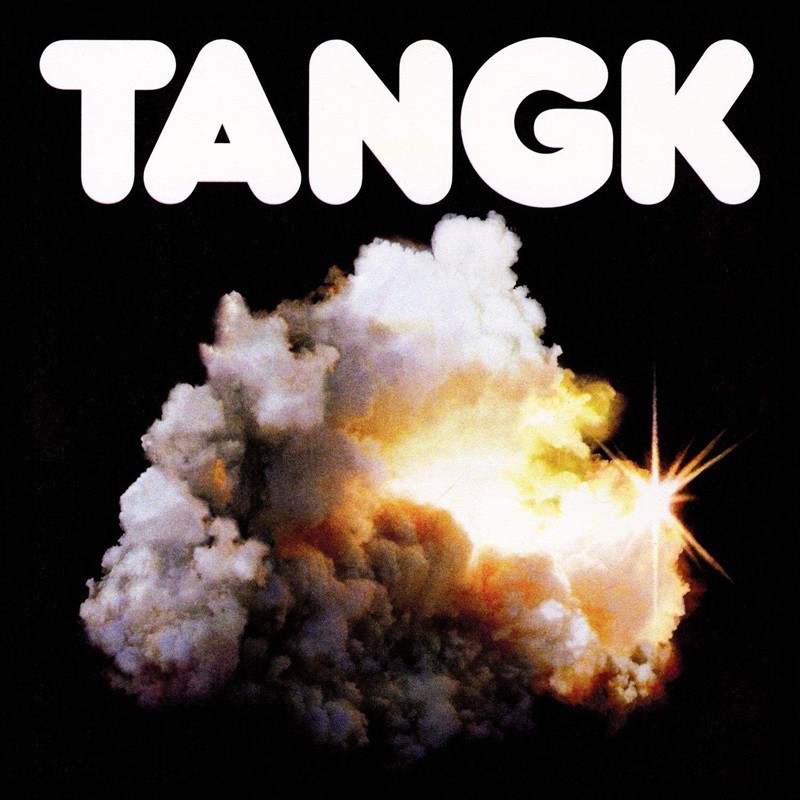
Tangk sonically raises IDLES’ collective bar for innovation and creativity.
It says something about the current plight of society that when Joe Talbot declared that the new Idles album is, in their own way, all about love, you had to pause to check whether you’d heard it correctly.
Love is, after all, a thing in critically short supply these days, be it when manifesting itself in empathy, forgiveness or looking in a mirror and not seeing some kind of personal failure.
Talbot, to his credit, was resolute, explaining that fatherhood and the unconditional devotion that it brings had greatly shaped his thinking. All told, the word features 29 times on Tangk, a manifesto summed up on Grace with the explanatory couplet: ‘No god, no king, I said love is the thing’.
There hasn’t always been a lot of love for Idles either from peers, the media and other assembled sceptics, but whilst the slogan-heavy agitprop of their third album Ultra Mono – an exercise in self-parody which broadly missed its targets – might’ve been a big step back, undaunted the quintet returned barely a year later with Crawler, a bleak but revelatory assemblage that was both artistic reset and career intervention.
After spending their first years playing to empty rooms, the undoubted milestone of reaching a fifth album might’ve constituted an opportunity for taking stock. Instead, here Radiohead producer Nigel Godrich joins guitarist Mark Bowen and longstanding collaborator Kenny Beats, a coup by anyone’s measure – and Tangk sonically raises the band’s collective bar for innovation and creativity.
Exhibit one is Idea 01, the album’s opener and which in – its original form – stems from the first session Bowen shared with Godrich at the end of 2022. Introduced with a nervous, celestial piano loop and stripped of heavy rhythms, the effect is to build a hypnotic landscape from which Talbot repeats apocryphally over and over, ‘These are the things you lost in the fire’.
Perhaps it’s an appropriate metaphor, this material the result of working on a deliberately set burning platform. The spirit of 1979 for instance permeates Gift Horse and Gratitude, each evoking the remarkable gravity of Killing Joke, whilst Hall & Oates relies paradoxically on Buzzcocks-esque guitar chops. If the latter is what outsiders might think all Idles tracks sound like, by contrast for initiates the naked alt-soul of Roy is like walking past a now-deserted Beachland Ballroom.
On previous albums the impression was that experimentation came very much within certain parameters. Talbot since though has spoken about confronting himself as an artist, making the group take up residence in their discomfort zone, a process facilitated by Godrich, of whom they’re all decades-long fans. The new boundary pushing approach is never more convincingly underlined in reverse than on Dancer, a familiarly muscular stomp which despite contributions from James Murphy and Nancy Whang already feels like a refugee from a less exhilarating era.
If negotiating each of the song surprises in turn is a process that mirrors getting unexpectedly fascinating presents, by a distance however the best gift lies in A Gospel, a hugely affecting break-up song, the singer scratching out, ‘Delete my number/I’m no more’, as an icy piano churns. For all the heated accusations of the past, with it is the impression of men who’ve publicly never sounded so vulnerable.
Crawler marked the first leg of this journey, and if Tangk isn’t any conclusion, then still Brutalism’s post-hardcore ledge might as well now be the moon for all its remoteness. Idles have always come in peace, but that and love are easily misunderstood.
Now in a place where backwards looks are futile, their fifth album is the first they’ve ever truly made for themselves, and everyone should love them for at least that.



